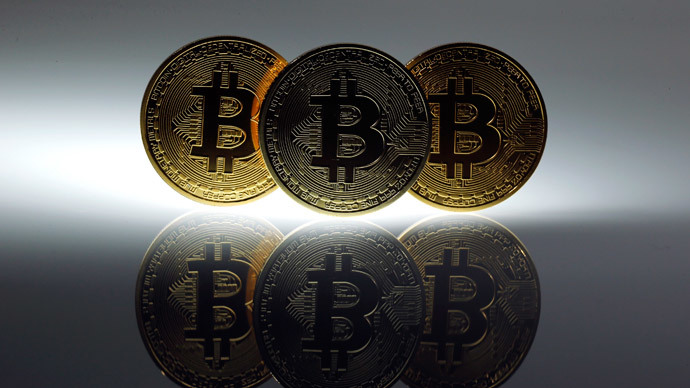– China’s Bitcoin crackdown intensifies as two more platforms closed (RT, May 9, 2014):
China has stepped its war on Bitcoin up a notch, shutting down two trading platforms. Fear of the crypto-currency in the country has been intensifying, with concerns that it is being used for money laundering and evading currency controls.
China Guangfa Bank and Shanghai Pudong Development Bank Co Ltd stated on Thursday that they had banned customers from using accounts to trade Bitcoins.
According to a Wednesday Wall Street Journal report, China’s central bank summoned executives to encourage them to put a stop to all Bitcoin-related business and tighten monitors on its trade.
Announcements posted on the bank websites stated that institutional and retail customers would not be permitted to use their accounts to trade Bitcoin.
“From this date, any institution or individual must not use accounts set up with our bank for the deposit and withdrawal… and transfer of funds for Bitcoin and [another virtual currency] Litecoin trading,” China’s biggest bank, ICBC, stated on its website, making it among 10 other major banks to crack down on Bitcoin.
Du Jun, the co-founder and vice president at one of China’s leading digital currency exchanges Huobi.com, told Reuters that to move as a severe blow to the industry. .
“We online exchanges as well as the entire industry are facing a serious challenge. Without an incoming cash flow, it’s hard to operate an exchange,” Jun stated.
The clampdown on Bitcoin has been increasing as the cryptocurrency has transformed from a niche interest into a major financial issue, prompting concern among regulators. China especially fears its usage will circumvent its own stringent currency restrictions.
On Thursday morning, Bitcoin was trading at around $445 – low in comparison to last November when it hit highs of $1,200.
In January, Alibaba, the Chinese internet retailer banned bitcoin and BTCChina – one of the currency’s strongest exchanges – had to stop receiving deposits.

Since China and Russia were the first two nations to jump on the South American Trade Alliance’s electronic currency, the Sucre, the first electronic trade system allowing member nations to trade with each other using their own currencies, leaving the dollar out, this is no surprise. The Sucre allowed the 12 small nations of the SATA to trade without involving the dollar at all. China and Russia were very interested in such a system. The Sucre simply translated the value of each currency during trading, making conversion to any currency obsolete and irrelevant.
The SATA introduced the Sucre in Summer of 2010. In November, 2010, Russia and China followed suit. They established a trade agreement very much like the SATA’s Sucre, allowing members to trade with each other using their own currencies, leaving the dollar out.
China went on to recruit other nations, Turkey, and many middle eastern nations, including Iran, who had been accepting many currencies for years. Iran, regardless of US propaganda, has become a very rich country, trading with most countries. China went on to recruit emerging African nations, many Central and South American nations, all excited about a trading system that left the dollar out.
After the US did its last absurd round of sanctions on Iran, Japan and India followed suit. New Zealand and Australia dumped the dollar last year.
The US was involved in 100% of all international trades in January of 2010. By January of 2014, less than half of the world nations use the dollar.
The US Achilles Heel has had a huge cut made to it’s structure. The US has been abusing their status, printing money nonstop, and finally, the world got sick of it.
Now, the US is sitting on piles of unwanted paper money.
It only makes sense that China and Russia would want their version of the Sucre to be the winner, not Bitcoin.
This will be a struggle for a while, but the model left us by Hugo Chavez appears to be the best for now. Not BitCoin, or any other scam currency will make #1……..
One thing we do know, the US as a world reserve currency is finished.